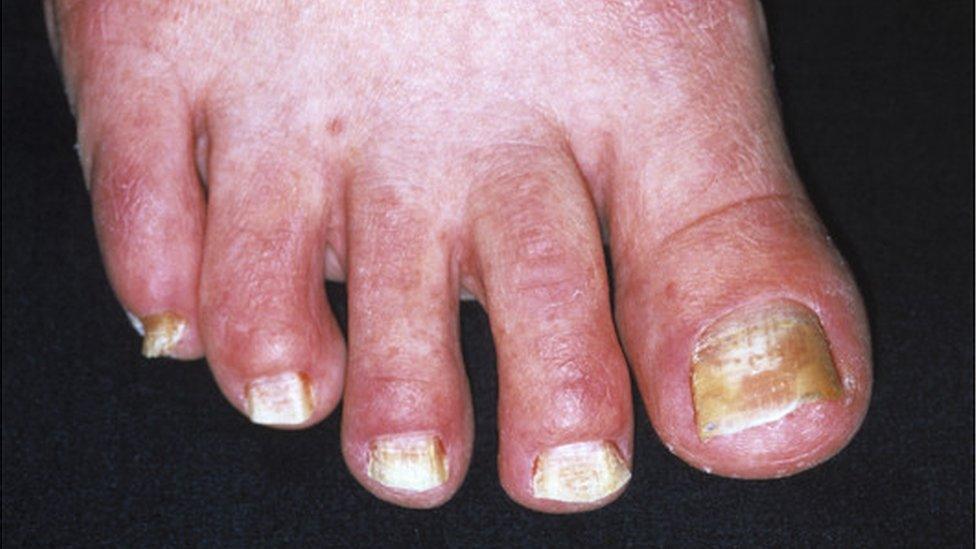Toenail fungus 'found to be asexual in humans'
- Published

The fungus that causes toenail infections and athlete's foot seems to have lost the knack of sexually reproducing, making it an easier target for drug treatments, US scientists say.
Lab tests found that the fungus refused to mate and, as a result, could be on its way out.
Fungal infections can be picked up from swimming pools, showers or locker rooms and by sharing towels.
They are not easy to cure, despite the availability of powders and drugs.
Scientists from Duke University School of Medicine said the "tenacious organism" that causes toenail infections appears to have lost the ability to sexually reproduce, presumably as it adapted to grow on humans.
"Their genome is like a rock, they would rather die than mutate," said Prof Joseph Heitman, senior study author and professor of molecular genetics.
A team of international researchers collected 135 different samples of Trichophyton rubrum from around the world to analyse, and encouraged them to mate - but there was no action at all after five months.
They said that was bad news for the fungus in the long term.
Sex bomb
"It is commonly thought that if an organism becomes asexual, it is doomed to extinction," Prof Heitman said.
"While that may be true, the time frame we are talking about here is probably hundreds of thousands to millions of years."
The discovery that the fungus cannot reproduce and diversify is good news for scientists, however.
It means they have the opportunity to design more effective medicines to treat it.
Prof Heitman said: "If we find the right kind of therapy we might have a better foothold on eradicating the organism."
While sexual species are more capable of mutating and therefore more likely to become resistant to drugs - the same cannot be said of the sexless toenail fungus.
The findings are published in the journal Genetics, external.